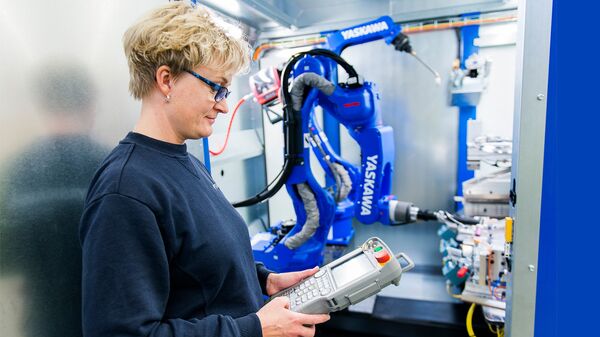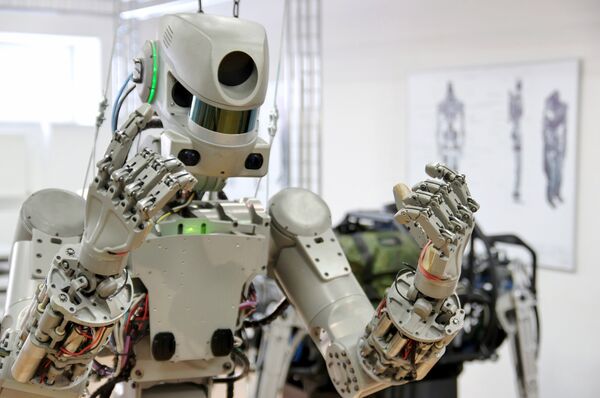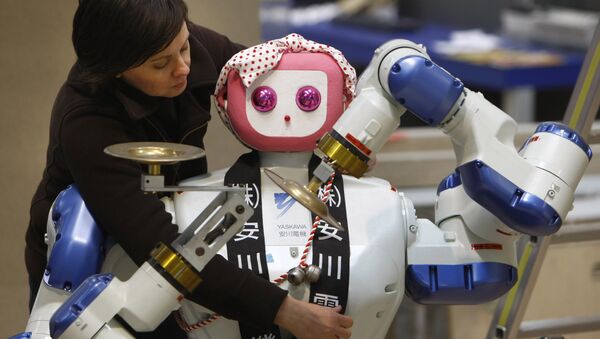The billion-dollar market in robots for industrial and service use is booming; by 2020, more than 1.7 million new industrial robots will be installed in factories worldwide. Sales of industrial robots are growing by an estimated 14% every year and service robots by 12% annually, according to the International Federation of Robotics.
The trend has caused concern among some employees that they could ultimately be replaced by a robot. A recent survey of people's feelings about automation found that millennials are anxious about automation, with 33 percent expressing worry that they would be replaced by a machine and 43 percent believing that they would lose their value as employees. The survey also found that 79% of executives think that robots will become co-workers for humans by 2020.

"The overall level of employment will not decrease due to digitization, and so far it hasn't decreased," co-author of the study, called "Changes in the World of Work," Dr. Enzo Weber told Sputnik Deutschland.
"The overall goal has to be that those who are in work now can keep up with this digital technological change," the economist said, warning that governments must heed the lessons of the 1970s, when unemployment increased because "people's competences simply did not correspond to what was required on the labor market."
Weber doesn't agree that machines will make humans obsolete in the near future. He pointed out that there are several spheres of work, such as teaching and healthcare, where a human touch is needed.
"The world is full of unsolved problems, and the world of work is just something which has to be organized properly," he said.

Schmidt, an economist at the at the RWI — Leibniz Institute for Economic Research, told the newspaper that Germany should abolish a law which prevents employees from working more than eight hours per day.
"For example, companies need some security that they are not acting unlawfully if an employee attends a conference call in the evening, and then reads their emails at breakfast. This would not only help companies, but also employees who can work more flexibly with digital technology," he explained.


